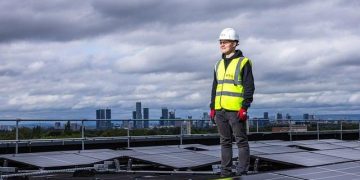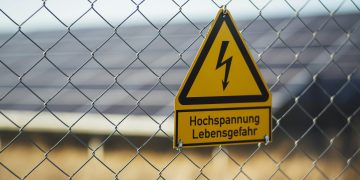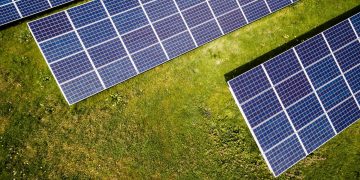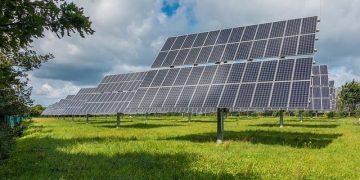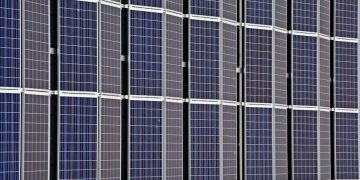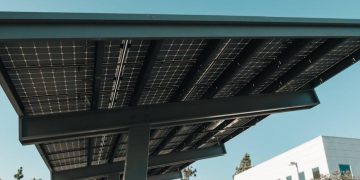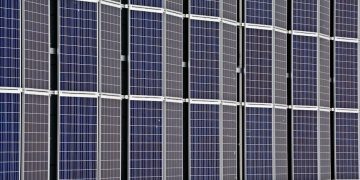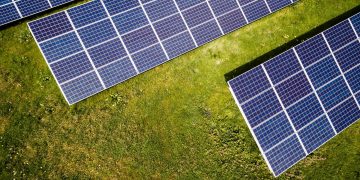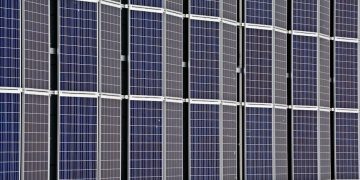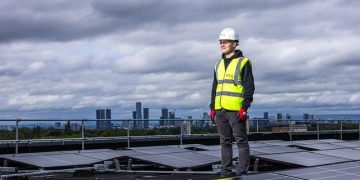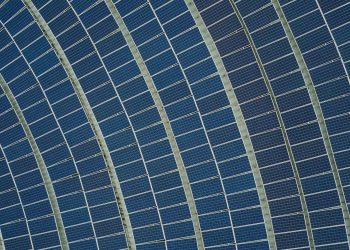In the burgeoning era of technological advancement, the sun is not the only star in the spotlight; artificial intelligence has emerged as a formidable force, casting its own digital glow across various industries. Among these, the solar energy sector stands at a pivotal crossroads, where innovation meets sustainability. As AI continues to integrate into solar energy systems, a critical question arises: should we place our trust in machines to harness the power of the sun? This inquiry delves into the heart of a dynamic relationship between cutting-edge technology and renewable energy, exploring the promises and pitfalls of AI-driven control in solar applications. As we navigate this uncharted territory, it becomes essential to weigh the potential benefits against the risks, considering both the precision of algorithms and the unpredictability of nature. In this exploration, we seek to illuminate the path forward, balancing the brilliance of AI with the timeless reliability of solar power.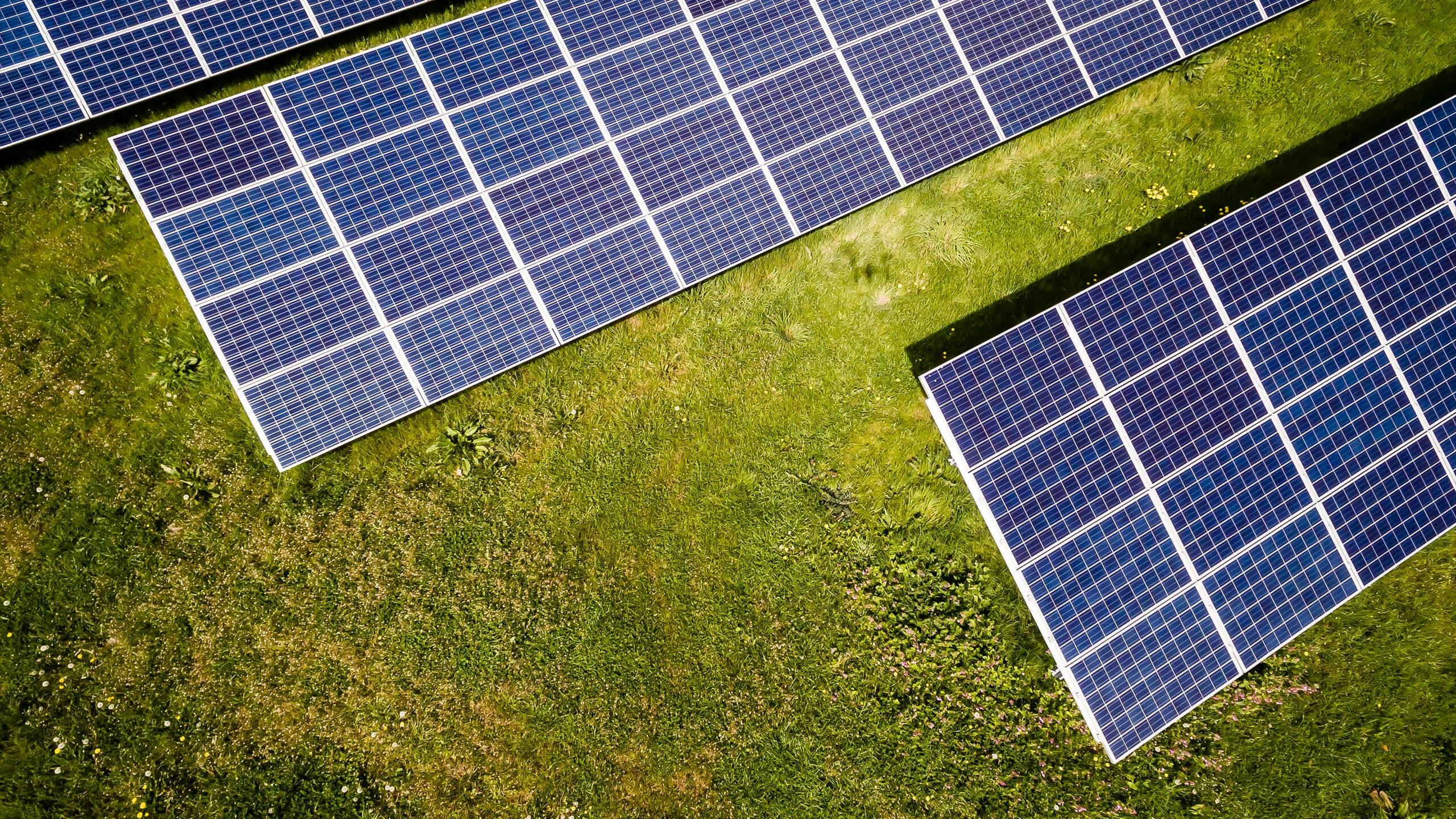
Balancing Innovation and Reliability in AI-Driven Solar Solutions
In the realm of solar energy systems, AI control presents a tantalizing prospect: optimizing performance, minimizing waste, and adapting to varying conditions in real-time. The potential benefits of integrating AI into solar solutions are manifold, offering improvements in efficiency and operational flexibility. However, these advancements must be weighed against the need for reliability, as the stakes in energy production are high. The quest to balance these factors is akin to walking a tightrope, where innovation must not overshadow the fundamental requirement of consistent energy delivery.
- Efficiency Optimization: AI algorithms can predict and adjust to weather patterns, optimizing solar panel angles and energy storage solutions.
- Predictive Maintenance: AI can preemptively identify and address potential faults, reducing downtime and maintenance costs.
- Grid Integration: AI aids in seamlessly integrating solar power into existing grids, ensuring stable and reliable energy distribution.
While AI-driven solar solutions promise a leap forward in sustainable energy management, their success hinges on a careful equilibrium between cutting-edge technology and steadfast reliability. The future of solar energy may well depend on how effectively these two pillars can be harmonized.
Evaluating the Safety Protocols of AI-Controlled Solar Systems
As we navigate the future of renewable energy, the role of AI in managing solar energy systems brings both promise and scrutiny. The implementation of AI-controlled protocols in solar systems requires a careful examination of their safety and reliability. One of the main concerns revolves around the potential for malfunctions or cyber threats, which could lead to significant disruptions. To mitigate these risks, companies must adopt comprehensive safety measures. Key strategies include:
- Regular software updates to patch vulnerabilities
- Robust encryption techniques to secure data transmissions
- Continuous monitoring for suspicious activities
On the other hand, the advantages offered by AI in optimizing solar energy production cannot be ignored. AI algorithms can predict weather patterns with greater accuracy, allowing for efficient energy distribution and storage. Moreover, they enable real-time adjustments to enhance the performance of solar panels, ensuring maximum energy capture. The balance between innovation and security is pivotal, and ongoing assessments are essential to maintain trust in these advanced systems.
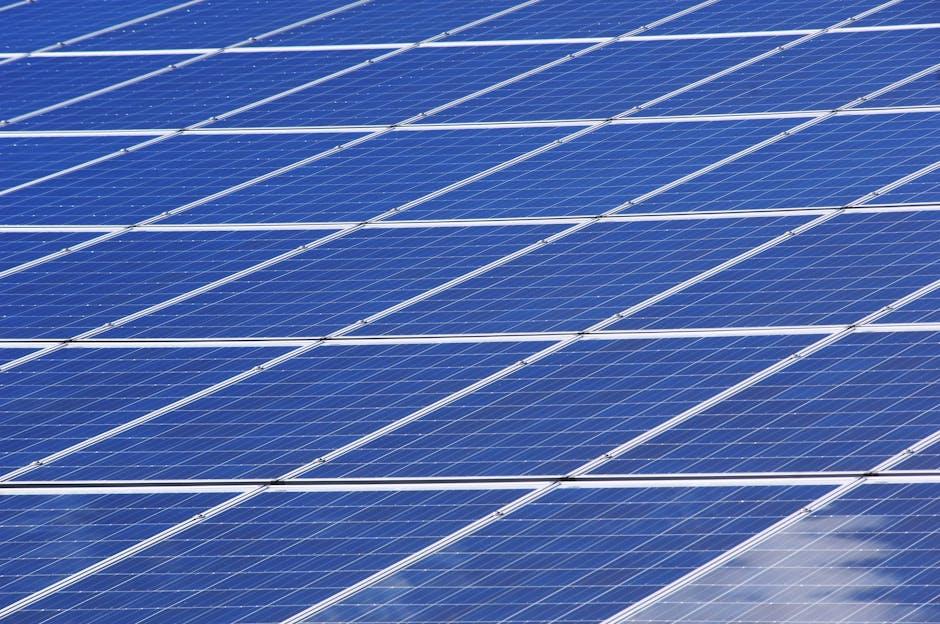
Harnessing AI for Optimal Solar Energy Efficiency: Opportunities and Challenges
Artificial Intelligence is increasingly seen as a game-changer in enhancing the efficiency of solar energy systems. By integrating AI, solar systems can predict weather patterns, optimize energy storage, and manage the distribution of electricity more effectively. AI algorithms analyze data from various sources, such as satellite images and weather forecasts, to predict sunlight availability and adjust the system’s operations accordingly. This can lead to a significant increase in energy output, making solar systems not only more reliable but also more sustainable.
However, entrusting AI with control over solar energy systems also presents a set of challenges. Data security is a major concern, as these systems become more interconnected and reliant on real-time data. There’s also the question of system transparency: how do we ensure AI decisions are understandable and accountable? Additionally, the integration of AI demands skilled personnel for maintenance and troubleshooting, which could drive up costs. These challenges require careful consideration and balanced solutions to fully realize AI’s potential in solar energy.
- Data Security: Ensuring the protection of sensitive information.
- System Transparency: Providing clear and understandable AI decision-making processes.
- Skilled Personnel: Necessity for expertise in managing and maintaining AI systems.

Strategic Recommendations for Trustworthy AI Integration in Solar Energy
Integrating AI into solar energy systems necessitates a balance between innovation and caution to ensure both efficiency and reliability. Here are some strategic recommendations to foster trustworthy AI integration:
- Data Integrity and Security: Ensure robust data governance frameworks that prioritize the accuracy, privacy, and security of data used by AI algorithms. Implement encryption and regular audits to safeguard against data breaches.
- Transparent AI Algorithms: Develop and deploy AI models that are interpretable and transparent. By allowing stakeholders to understand AI decision-making processes, trust can be established more effectively.
- Regulatory Compliance: Stay informed and compliant with international and local regulations governing AI and renewable energy. This not only mitigates legal risks but also builds credibility with consumers and partners.
- Human Oversight: Incorporate human-in-the-loop systems where experts can monitor, validate, and intervene in AI operations when necessary. This blend of AI and human expertise ensures better decision-making.
- Continuous Monitoring and Feedback: Establish mechanisms for ongoing monitoring of AI performance and incorporate feedback loops to iteratively improve AI models. This approach can adapt to changing conditions and enhance system reliability.
By adopting these strategies, organizations can effectively leverage AI in solar energy, maximizing its potential while ensuring trust and reliability in their systems.
Key Takeaways
As we stand at the crossroads of innovation and responsibility, the question of entrusting AI with the reins of solar energy systems invites us to reflect on both the promises and perils of technological advancement. The sun, a timeless symbol of power and potential, now finds itself harnessed in new and sophisticated ways, thanks to the capabilities of artificial intelligence. Yet, as we delve deeper into this brave new world, it becomes imperative to balance our quest for efficiency with an unwavering commitment to safety, transparency, and ethical oversight.
In pondering whether AI should control solar energy systems, we are not merely evaluating a technological proposition but engaging in a broader dialogue about the future we envision. It is a conversation that demands the input of engineers, ethicists, policymakers, and the public alike. As we continue to explore the intersection of AI and renewable energy, let us remain vigilant stewards of innovation, ensuring that our journey towards a sustainable future is guided by wisdom and foresight.
Ultimately, the path we choose will shape not only the trajectory of solar energy but also the legacy we leave for generations to come. In the dance between sunlight and silicon, may we find harmony, harnessing the full potential of AI while safeguarding the principles that define our shared humanity.

